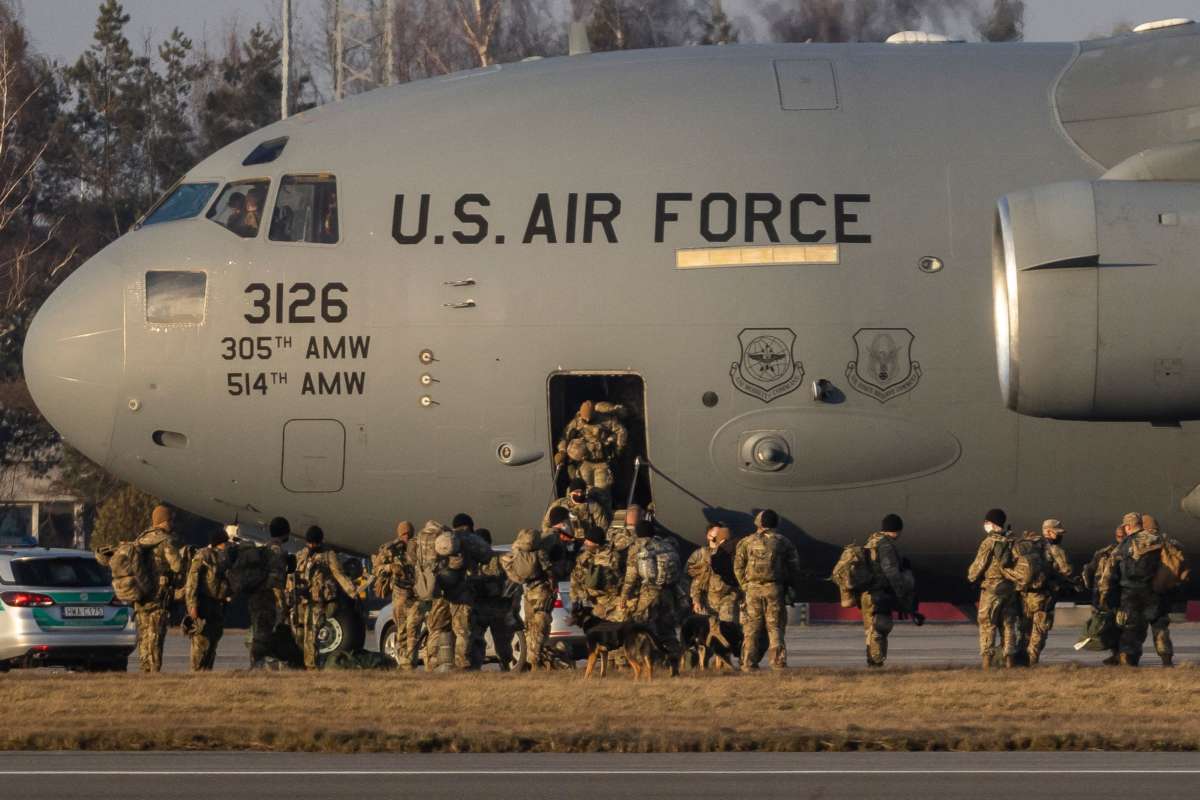Lies About Ukraine Conflict Are Standing in the Way of a Peaceful Resolution
The Ukraine-Russia conflict has escalated to a very dangerous point The possibility that it can turn into an armed conflict, or even a war, has increased significantly and is real. But the Russian invasion, which was basically announced by the U.S. and British governments and mediafor February 16, has not happened, and Russia declared the partial withdrawal of its forces. Such war is hardly inevitable and can be avoided. However, the peaceful resolution of the Ukraine-Russia conflict and the war in Donbas in Eastern Ukraine is greatly complicated by the dominant narratives of the Ukraine conflict.
The narratives that are propagated by the Western governments and the mainstream media concerning the origin and the nature of the Ukraine conflict are truly Orwellian. They state that the pro-Russian government in Ukraine was ousted as result of peaceful mass Euromaidan protests in February 2014 and that President Viktor Yanukovych fled Ukraine because he ordered the massacre of the peaceful Maidan protesters by government forces. These protests took place on the main square in Kyiv, which is called Maidan, and they were directed against the Yanukovych government and his decision to suspend signing the EU association and free trade agreement. According to these narratives, Russia then annexed Crimea by using pure military force and launched a war with Ukraine in Donbas. These narratives assert that Ukraine is a sovereign democratic state which has a right to join the North Atlantic Treaty Organization (NATO) in the future and that Russia plans to invade Ukraine within days or weeks.
Various evidence presented in studies by Western scholars who have researched the Ukraine conflict shows that these narratives are false. This mass killing of the Maidan movement’s own supporters — perpetrated by the oligarchic and far right elements of the Maidan alliance — made it possible for Maidan leaders to falsely blame the pro-Russian Yanukovych government and its police and security forces for the killing and then seize power in Ukraine. Western governments backed this undemocratic overthrow of the democratically elected Ukrainian government.
The absolute majority of wounded Maidan protesters testified at the Maidan massacre trial and investigation in Ukraine that they and other protesters were massacred by snipers from the Hotel Ukraina and other buildings, which were seized by the Maidan opposition alliance, or that they witnessed such snipers there. Synchronized videos show that specific times and directions of the shooting of the majority of specific protesters did not coincide with specific times and directions of shooting by Berkut anti-riot police officers who were charged in Ukraine with their massacre. The investigation and the media revealed no evidence of any order by Yanukovych or his ministers and commanders to massacre the Maidan protesters. In contrast, 14 self-admitted members of the Maidan sniper units confessed that they themselves or other Maidan snipers massacred the police or protesters, and that this mass killing was done under the orders of Maidan leaders and former leaders of the pro-Western government of Mikheil Saakashvili in Georgia. Several Maidan leaders and activists testified about specific involvement of Maidan leaders in this mass killing.
Moreover, two leaders of Ukraine’s far right Svoboda party stated that a representative of an unnamed Western government told them and other Maidan leaders a few weeks before the massacre that Western governments would turn on the Yanukovych government after casualties among protesters reached 100. The killed Maidan protesters were immediately called the “Heavenly Hundred” and Western governments blamed Yanukovych and his forces, and recognized the new Maidan government.
In return, Russia escalated the conflict by annexing Crimea, where the majority of the population is ethnically Russian. Russia used a covert military intervention in this region. But public opinion polls showed that the absolute majority of Crimeans before and after the annexationsupported joining Russia.
A poll conducted shortly before the start of the war in Donbas showed that most of its residents supported separatism, ranging from autonomy within Ukraine to independence or joining Russia. The majority of scholars who researched this conflict classify the war in Donbas as a civil war with direct Russian military interventions in support of pro-Russian separatists in August 2014 and January-February 2015. It is revealing that satellite photos and videos of deployment of Russian troops, and Western intelligence reports about such deployment currently near Ukraine, in Belarus and Transnistria now confirm that there are no Russian military units in Donbas, whereas there are currently many Russian military units stationed in Crimea.
An actual Russian-Ukrainian war would be devastating for Ukraine. Russian President Vladimir Putin might use the current large military buildup near Ukraine either to try to force a peace deal on his preferred terms or to resort to some kind of military option. Such options might sooner or later include recognition of independence of separatist republics in Donbas and deployment of Russian military forces there, a limited armed conflict or even a full-scale war.
But there is still a possibility for a peaceful resolution of the Ukraine conflict. Recent visits by French and German leaders to Russia and Ukraine represent such efforts. A peaceful conflict resolution can be done via an international agreement that offers Ukraine European Union membership prospects provided that it fulfills accession criteria (such as democracy) in exchange for neutral status and resolving the conflict in Donbas based on the Minsk agreements. The Minsk agreements, which were signed in the Belarus capital, specify a ceasefire and granting a special status within Ukraine and self-government to the separatist-controlled part of Donbas after the elections there. But such peaceful resolution of the Ukraine conflict requires recognizing that its dominant narratives and its origins are false.





Geen opmerkingen:
Een reactie posten